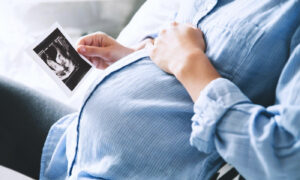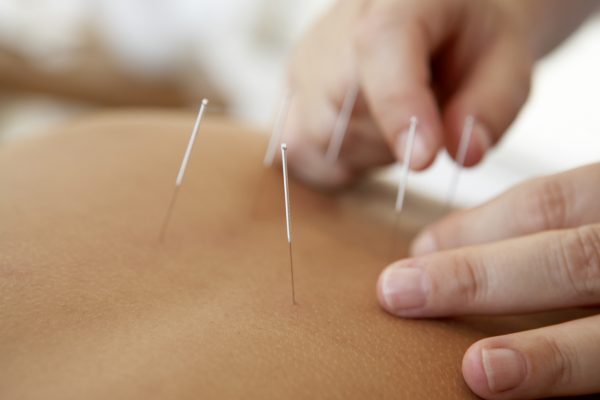Suffering From Infertility? Ancient Medicine Makes Magic
Infertility is a disease of the male or female reproductive system defined by the failure to achieve a pregnancy after 12 months or more of regular unprotected sexual intercourse. According to the world health organization, infertility affects millions of people of reproductive age worldwide – and has an impact on their families and communities. Estimates suggest that between 48 million couples and 186 million individuals live with infertility globally. Traditional Chinese medicine (TCM) offers countless ways to improve one’s health and well-being. The following story is one of many that illustrates the efficacy of TCM in treating infertility. A couple had been married for three years. The woman, “Ms. W.” despite three attempts of artificial insemination, failed to become pregnant. Ms. W. suffered from insomnia, anxiety, and appetite loss. “Mr. W.” had problems with insomnia, bloated stomach, deficiency of stomach acid, and low back pain. Dr. Jonathan Liu, a TCM practitioner with more than 26 years of professional medical experience, prescribed acupuncture and TCM for both of them. After a three-month treatment, the couple rejoiced at the announcement of conception. Symptoms and Consultation TCM treatment focuses on considering the body as a whole. The organs of the body are connected to other parts of the body which constitutes a whole-body system. The reproductive system is related to the kidneys, and the female reproductive system is also called the “lower elixir field,” located in the abdomen. The pelvic cavity locates in the lower elixir field and includes the urinary and reproductive systems. Despite modern medicine’s ongoing research of the microcosm of the human body, the reproductive process remains complicated. Reproduction involves ovulation, fertilization, and implantation of an embryo into the uterus. Ovulation disorder is the most common cause of infertility in women. Though modern medicine has a variety of treatment methods, the process of implanting zygotes into the uterus has not been fully studied. A professor of obstetrics said that human science seems to be well-developed, but we still cannot recreate a uterus. After in vitro fertilization (IVF), also known as artificial fertilization, the fertilized egg still needs to be implanted in the uterus. If the implantation fails, no pregnancy occurs. The current IVF success rate is more than 95 percent and the chance of conceiving a child is around 30-40 percent, which is equivalent to the natural fertility rate of healthy couples. In TCM, qi (vital energy), blood, essence, and body fluids are the essential substances for life activities, all originating from the internal organs and flowing constantly inside the body. Ensuring these essential substances are sufficient and circulating throughout the body is very important for health and well-being. Illnesses or other conditions are caused by the stagnation or lack of these substances. The critical issue of this couple was the unsuccessful implantation of embryos into the uterus, failing to conceive a fetus. Strengthening the kidney and replenishing the “essence” is a method to facilitate the normal hyperplasia of the endometrium, and can ensure the fertilized eggs land on the endometrium successfully. It is also necessary to disperse “qi” in a stagnated liver, relax the mind, and relieve emotional pressure for conception to occur. For this couple, ongoing infertility was causing them stress and discord. They were nervous—which affects the endocrine system, thus adding to the causes of infertility. In the theory of TCM, the organs and emotions affect each other. The liver takes over the transformation of energy in the whole body—thus emotions such as anger or fear can damage energy in the liver. Acupuncture and TCM To increase their chances of conception, Liu recommended acupuncture to strengthen the kidney and facilitate pregnancy: Gate of origin (CV 4), Central Pole (CV 3), Return (ST 29), and Celestial Pivot (ST 25)—this group of acupoints is near the abdomen and can strengthen the kidney and replenish the essence, enhance the hyperplasia of the endometrium, and make fertile “the soil” so the implanted seed can grow thickly and steadily. The other group of acupoints is in the back: Heart Shu (BL 15), Diaphragm Shu (BL 17), and Kidney Shu (BL 23), which can strengthen the yang energy in the body, and connect the heart above and the kidney below, resulting in warming yang and strengthening kidney. (BananaStock/BananaStock/Thinkstock) In Chinese philosophy, energy in the universe can be divided into yin and yang, represented by the two colors on the Tai Chi diagram. Yin and yang are opposite to each other but can be mutually transformed. Both the universe and the human body contain yin and yang. For example, the day is yang, the night is yin, warm is yang and cold is yin, etc. The critical factor in treating diseases in TCM is balancing the yin and yang inside the body. A warm

Infertility is a disease of the male or female reproductive system defined by the failure to achieve a pregnancy after 12 months or more of regular unprotected sexual intercourse. According to the world health organization, infertility affects millions of people of reproductive age worldwide – and has an impact on their families and communities. Estimates suggest that between 48 million couples and 186 million individuals live with infertility globally.
Traditional Chinese medicine (TCM) offers countless ways to improve one’s health and well-being. The following story is one of many that illustrates the efficacy of TCM in treating infertility.
A couple had been married for three years. The woman, “Ms. W.” despite three attempts of artificial insemination, failed to become pregnant. Ms. W. suffered from insomnia, anxiety, and appetite loss. “Mr. W.” had problems with insomnia, bloated stomach, deficiency of stomach acid, and low back pain.
Dr. Jonathan Liu, a TCM practitioner with more than 26 years of professional medical experience, prescribed acupuncture and TCM for both of them. After a three-month treatment, the couple rejoiced at the announcement of conception.
Symptoms and Consultation
TCM treatment focuses on considering the body as a whole. The organs of the body are connected to other parts of the body which constitutes a whole-body system. The reproductive system is related to the kidneys, and the female reproductive system is also called the “lower elixir field,” located in the abdomen.
The pelvic cavity locates in the lower elixir field and includes the urinary and reproductive systems. Despite modern medicine’s ongoing research of the microcosm of the human body, the reproductive process remains complicated. Reproduction involves ovulation, fertilization, and implantation of an embryo into the uterus.
Ovulation disorder is the most common cause of infertility in women. Though modern medicine has a variety of treatment methods, the process of implanting zygotes into the uterus has not been fully studied.
A professor of obstetrics said that human science seems to be well-developed, but we still cannot recreate a uterus. After in vitro fertilization (IVF), also known as artificial fertilization, the fertilized egg still needs to be implanted in the uterus. If the implantation fails, no pregnancy occurs. The current IVF success rate is more than 95 percent and the chance of conceiving a child is around 30-40 percent, which is equivalent to the natural fertility rate of healthy couples.
In TCM, qi (vital energy), blood, essence, and body fluids are the essential substances for life activities, all originating from the internal organs and flowing constantly inside the body. Ensuring these essential substances are sufficient and circulating throughout the body is very important for health and well-being. Illnesses or other conditions are caused by the stagnation or lack of these substances.
The critical issue of this couple was the unsuccessful implantation of embryos into the uterus, failing to conceive a fetus. Strengthening the kidney and replenishing the “essence” is a method to facilitate the normal hyperplasia of the endometrium, and can ensure the fertilized eggs land on the endometrium successfully.
It is also necessary to disperse “qi” in a stagnated liver, relax the mind, and relieve emotional pressure for conception to occur. For this couple, ongoing infertility was causing them stress and discord. They were nervous—which affects the endocrine system, thus adding to the causes of infertility.
In the theory of TCM, the organs and emotions affect each other. The liver takes over the transformation of energy in the whole body—thus emotions such as anger or fear can damage energy in the liver.
Acupuncture and TCM
To increase their chances of conception, Liu recommended acupuncture to strengthen the kidney and facilitate pregnancy: Gate of origin (CV 4), Central Pole (CV 3), Return (ST 29), and Celestial Pivot (ST 25)—this group of acupoints is near the abdomen and can strengthen the kidney and replenish the essence, enhance the hyperplasia of the endometrium, and make fertile “the soil” so the implanted seed can grow thickly and steadily.
The other group of acupoints is in the back: Heart Shu (BL 15), Diaphragm Shu (BL 17), and Kidney Shu (BL 23), which can strengthen the yang energy in the body, and connect the heart above and the kidney below, resulting in warming yang and strengthening kidney.

In Chinese philosophy, energy in the universe can be divided into yin and yang, represented by the two colors on the Tai Chi diagram. Yin and yang are opposite to each other but can be mutually transformed. Both the universe and the human body contain yin and yang. For example, the day is yang, the night is yin, warm is yang and cold is yin, etc. The critical factor in treating diseases in TCM is balancing the yin and yang inside the body.
A warm environment and rich nutrient support are essential to fetal growth. It is all about energy in the lower elixir field—the replenishment of qi. Once the yang qi is sufficient, the sperm and ovum will have vitality and easily combine, and the hyperplasia of the endometrium will also be complete and adequate—conducive to the embryo’s growth.
Except for acupuncture, Liu prescribed TCM regulate their bodies. The medicine for the woman was focused on strengthening kidneys, warming the uterus, nourishing qi, and dispersing the qi in the liver. The medicine for the man focused on dispersing the qi in the liver, strengthening his kidneys, and replenishing the essence. Healthy sperm and the health of seminal plasma secreted by gonads are essential factors for creating a healthy baby.












